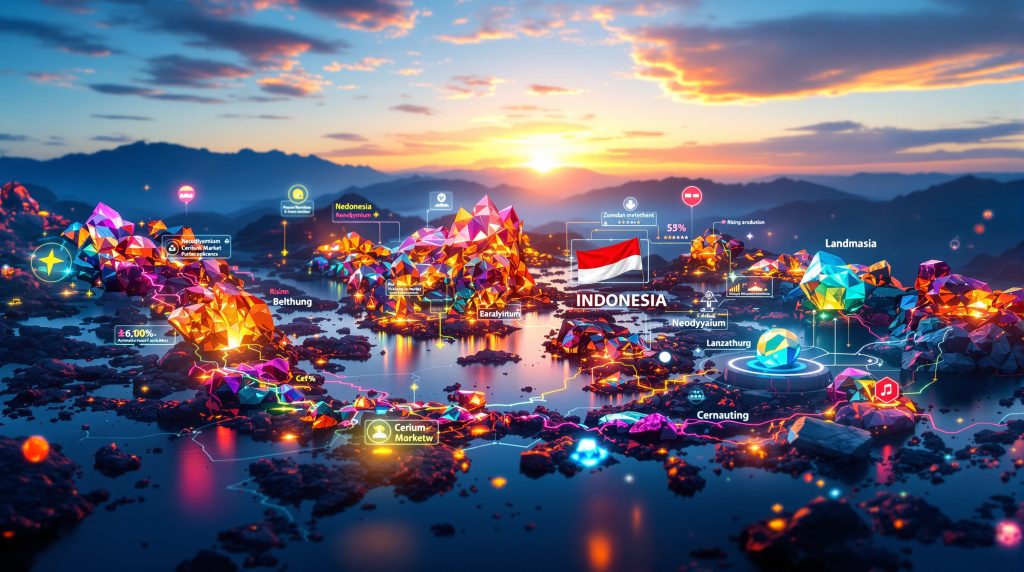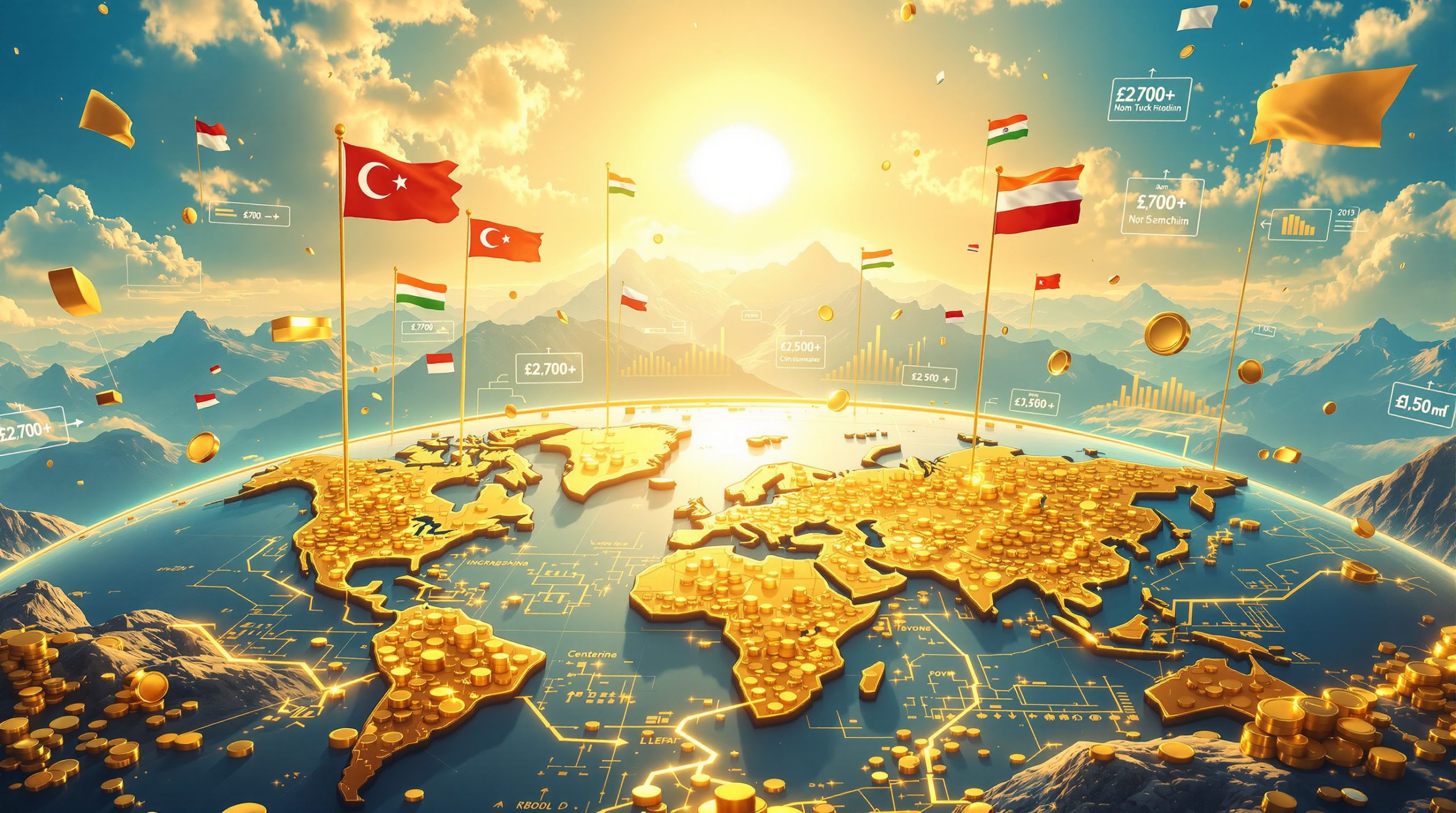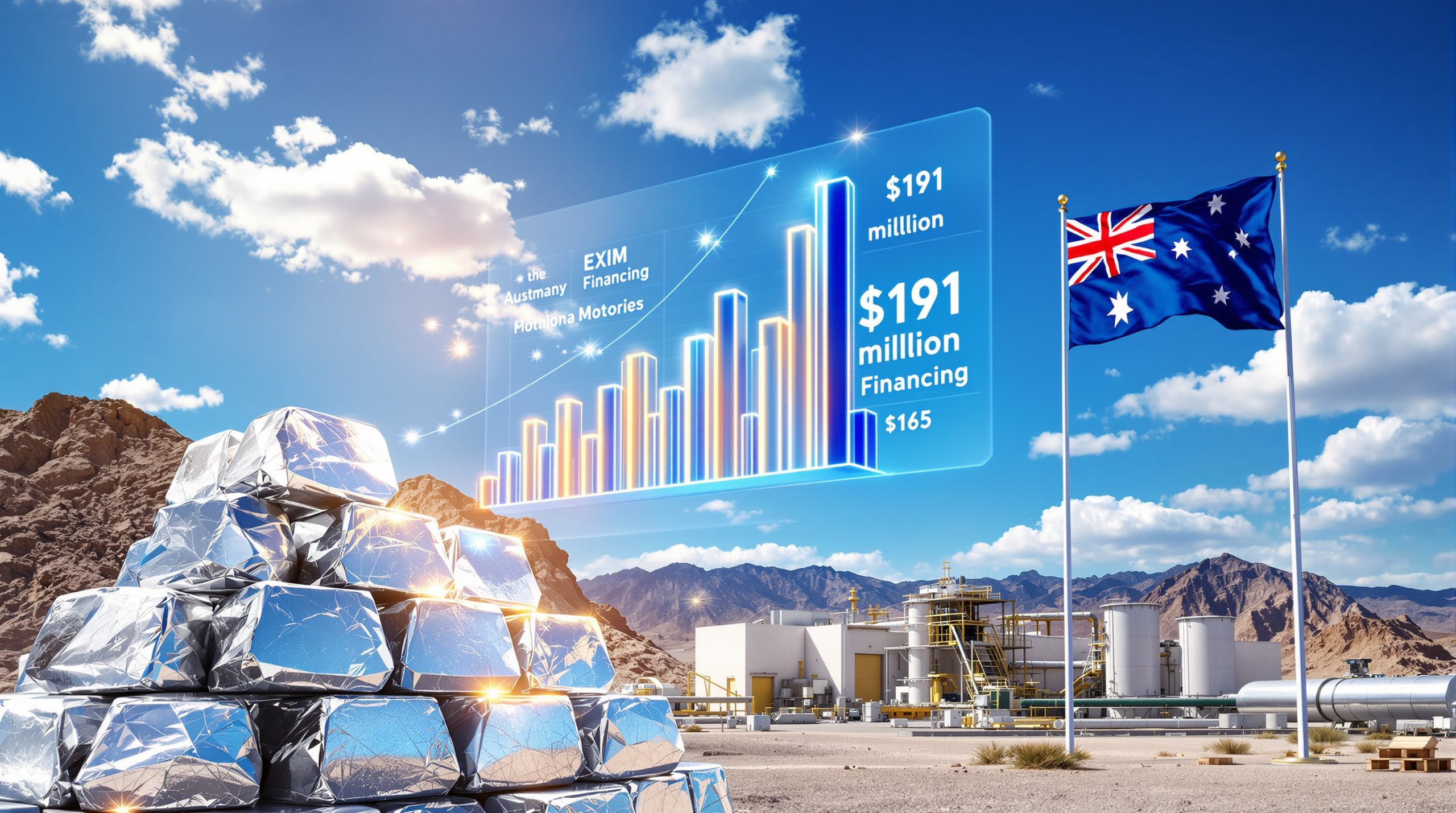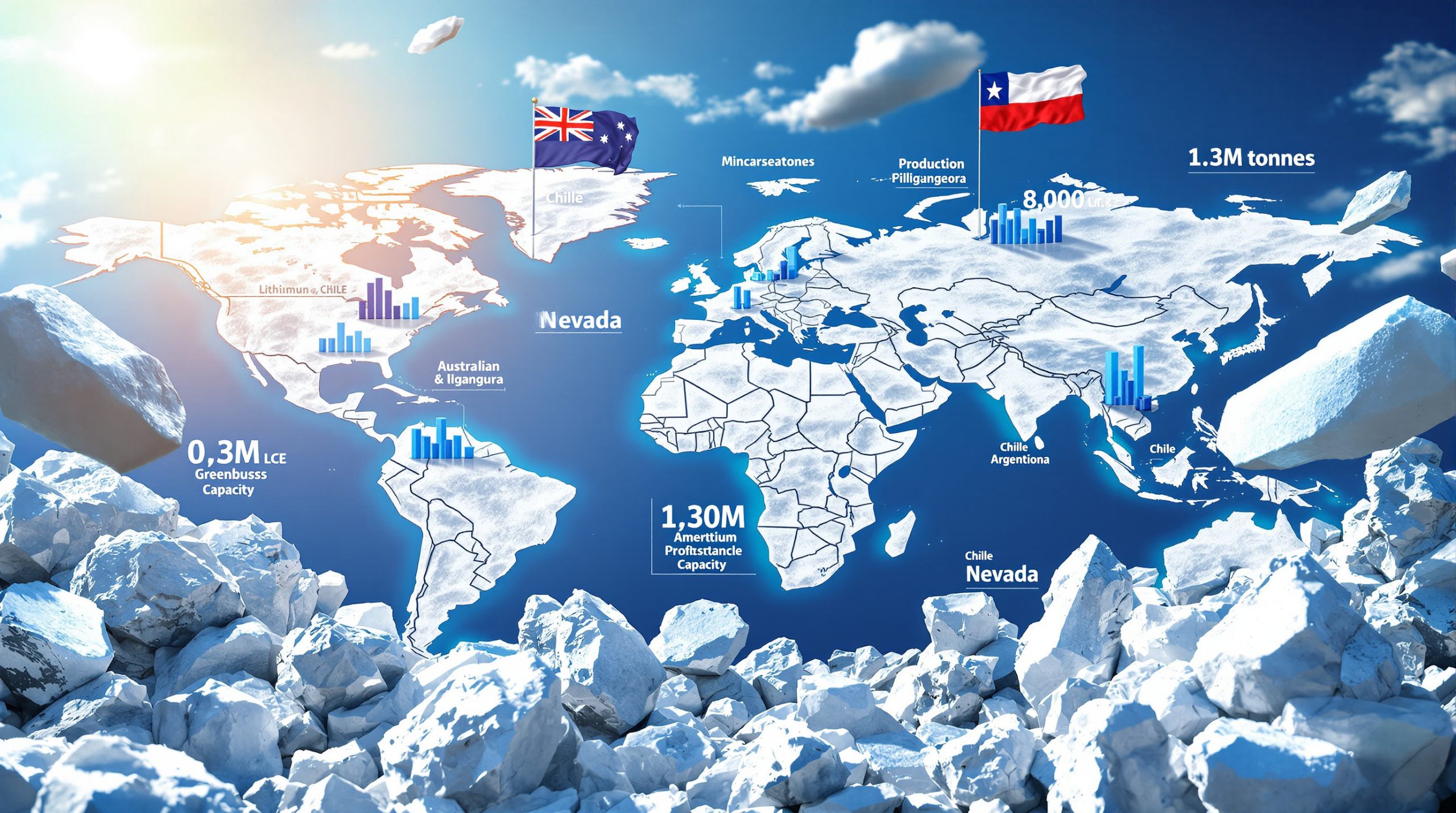Indonesia's Strategic Rare Earth Development: The New Mineral Industry Agency
Indonesia has established a new mineral industry agency to oversee the development of rare earth elements and radioactive materials, marking a significant step in the country's strategy to leverage its abundant mineral resources. This development represents Indonesia's growing ambition to become a major player in the critical minerals energy transition sector, particularly as global demand for rare earths continues to rise amid technological advancement and green energy transitions.
Indonesia's Rare Earth Potential and Strategic Vision
The newly formed agency, headed by Higher Education Minister Brian Yuliarto, will focus on managing strategic materials crucial for both national defense capabilities and economic development. Indonesia possesses substantial reserves of critical minerals and rare earth elements, often found as byproducts in nickel and tin processing operations, positioning the country to potentially compete with established rare earth producers.
According to Yuliarto, "This agency will manage the strategic materials industry that relates to the defense industry, because strategic materials are quite important for the sovereignty of the nation, as well as important for the improvement of our economy." This statement underscores the dual objectives of national security and economic advancement.
Key Objectives of the New Mineral Industry Agency
The agency's mandate encompasses several strategic priorities:
- Coordinating the development of rare earth elements from mining through processing
- Managing radioactive materials with strategic importance
- Supporting Indonesia's defense industry through materials sovereignty
- Enhancing economic value through downstream processing initiatives
- Implementing regulatory frameworks for sustainable resource management
This move aligns with Indonesia's broader strategy of adding value to its mineral resources rather than simply exporting raw materials.
What Natural Resources Support Indonesia's Rare Earth Ambitions?
Indonesia's Critical Mineral Landscape
Indonesia's geological makeup provides a natural advantage in the rare earth sector. The country sits on significant deposits of various minerals that contain rare earth elements as secondary components or processing byproducts, creating multiple pathways to rare earth production.
Primary Sources of Indonesian Rare Earths
Tin Mining Byproducts
Indonesia ranks among the world's largest tin producers, with operations concentrated in the islands of Bangka and Belitung. These tin mining activities generate substantial amounts of monazite, a phosphate mineral that contains various rare earth elements including cerium, lanthanum, and neodymium.
| Tin Mining Byproduct | Rare Earth Content | Potential Applications |
|---|---|---|
| Monazite | 55-60% rare earth oxides | Permanent magnets, catalysts, glass polishing |
| Xenotime | Up to 67% rare earth oxides | Phosphors, ceramics, nuclear applications |
| Zircon | Trace amounts | Ceramics, foundry applications |
Industry analysts estimate that Indonesia's tin mining operations could potentially yield thousands of tons of monazite annually, providing a significant source of rare earth elements without requiring dedicated rare earth mining operations.
Nickel Processing Residues
As one of the world's largest nickel producers, Indonesia generates significant volumes of processing residues that contain recoverable rare earth elements. The country's nickel laterite deposits, particularly those in Sulawesi and Halmahera, contain trace amounts of scandium and other rare earth elements that can be extracted during processing.
The Indonesian government has indicated that preliminary assessments suggest nickel processing facilities could recover rare earth elements as valuable byproducts, potentially creating an additional revenue stream for existing operations.
Unexplored Rare Earth Deposits
Geological surveys indicate potential primary rare earth deposits in various regions across the Indonesian archipelago that remain largely unexplored or undeveloped. These include ionic clay deposits similar to those found in southern China and Myanmar, which are particularly rich in heavy rare earth elements that command premium prices in global markets.
Why Is Indonesia Prioritizing Rare Earth Development Now?
Global Strategic Context
Rising Global Demand
The global market for rare earth elements is projected to grow substantially, driven by:
- Expanding electric vehicle production requiring permanent magnets
- Renewable energy technologies including wind turbines
- Advanced electronics and defense applications
- Digital technology infrastructure expansion
Market analysts predict that demand for certain rare earth elements, particularly neodymium and praseodymium used in permanent magnets, could double by 2030 as the green energy transition accelerates.
Supply Chain Diversification Efforts
Many countries are actively seeking to reduce dependence on China, which currently dominates global rare earth production and processing. Indonesia's entry into this market aligns with international efforts to diversify supply chains.
The United States, European Union, Japan, and other industrialized economies have all launched initiatives to secure rare earth supplies outside of China, creating potential markets for new producers like Indonesia. This global push for supply diversification provides a strategic window of opportunity for Indonesia to establish itself in the market.
National Strategic Imperatives
Economic Transformation Goals
Indonesia's rare earth development initiative aligns with several national economic objectives:
- Value-added manufacturing rather than raw material exports
- Job creation in high-technology sectors
- Increased export revenue from processed materials
- Development of domestic manufacturing capabilities
President Prabowo Subianto's administration has emphasized industrial development as a key priority, with rare earth processing representing a high-value sector that could help reduce Indonesia's historical dependence on raw commodity exports.
Defense and Sovereignty Considerations
The new agency's formation under President Prabowo Subianto, who has a military background, highlights the strategic importance Indonesia places on controlling critical minerals for national security purposes. Rare earth elements are essential components in various defense technologies, including precision-guided weapons, radar systems, and electronic warfare equipment.
By developing domestic rare earth capabilities, Indonesia aims to reduce vulnerability to potential US–China trade impacts or export restrictions that could impact its defense industrial base.
How Will Indonesia Develop Its Rare Earth Industry?
Current Development Initiatives
Monazite Processing from Tin Operations
Indonesia has been exploring technologies to extract rare earth elements from monazite found in tin mining operations. This approach leverages existing mining infrastructure while adding value through downstream processing.
PT Timah, Indonesia's state-owned tin mining company, has already initiated projects to recover monazite from tin mining tailings. The company has reported collecting significant quantities of monazite concentrate that could serve as feedstock for rare earth processing facilities.
Research and Development Partnerships
The country has initiated collaborations with international partners to develop extraction and processing technologies suitable for Indonesia's specific rare earth resources. These include:
- Technical cooperation with countries that have established rare earth industries
- Research partnerships with international universities and research institutions
- Technology transfer agreements with processing equipment manufacturers
- Joint ventures with international mining companies with rare earth expertise
These partnerships aim to accelerate Indonesia's technological development and reduce the learning curve for establishing processing capabilities.
Regulatory Framework and Policy Direction
Downstream Processing Requirements
Following the pattern established with nickel and other minerals, Indonesia may implement policies requiring domestic processing of rare earth minerals before export, encouraging investment in local processing facilities.
The Indonesian government previously banned nickel ore exports in 2020, successfully attracting billions of dollars in investment for domestic processing facilities. A similar approach to rare earth minerals could drive investment in processing technology while ensuring value addition occurs domestically.
Investment Incentives
The government is likely to offer incentives for companies investing in rare earth processing technologies and facilities within Indonesia. These could include:
- Tax holidays for new processing facilities
- Reduced import duties on essential equipment
- Streamlined permitting for strategic projects
- Land acquisition assistance and infrastructure support
- Research and development grants or tax credits
These incentives aim to offset the substantial capital requirements and technological challenges associated with rare earth processing.
What Challenges Does Indonesia Face in Rare Earth Development?
Technical and Infrastructure Hurdles
Processing Technology Requirements
Rare earth processing requires sophisticated technology and expertise that Indonesia is still developing. The separation and purification of individual rare earth elements present particular technical challenges.
The rare earth value chain involves multiple complex processing steps:
- Physical separation of rare earth-bearing minerals
- Chemical leaching to extract rare earth elements
- Solvent extraction to separate individual elements
- Refining to produce high-purity oxides or metals
- Manufacturing of alloys and end products
Each step requires specialized knowledge, equipment, and strict environmental controls. Indonesia will need to develop or acquire this technical expertise to establish a complete value chain.
Environmental Management Concerns
Rare earth processing can generate radioactive waste and other environmental hazards that require careful management and appropriate regulatory frameworks.
Monazite typically contains thorium and sometimes uranium, naturally occurring radioactive materials that must be safely managed during processing. Establishing appropriate nuclear waste management technology and environmental monitoring systems will be essential for sustainable industry development.
Market and Competition Factors
Established Global Competitors
Indonesia will need to compete with established rare earth producers including China, the United States, Australia, and Myanmar, many of which have more developed processing capabilities and market relationships.
China currently dominates rare earth processing with approximately 85% of global capacity, giving it significant market influence. Other countries including Australia (through Lynas Rare Earths) and the United States (through MP Materials) have established production and processing capabilities with strong customer relationships.
Price Volatility Risks
The rare earth market has historically experienced significant price volatility, which could impact the economic viability of new processing operations. In 2011, prices for some rare earth oxides increased more than tenfold before collapsing, demonstrating the potential market risks.
Developing a sustainable business model that can weather market fluctuations will be critical for Indonesia's rare earth industry. This may require strategic partnerships with end-users to establish long-term supply agreements or vertical integration into manufacturing to capture more value from the supply chain.
How Does Indonesia's Move Compare to Global Rare Earth Developments?
Regional Context in Southeast Asia
Other Southeast Asian nations, including Malaysia and Vietnam, have also explored rare earth development, creating both competitive pressure and potential for regional collaboration.
Malaysia hosts Lynas Rare Earths' processing facility, which handles material mined in Australia. Vietnam has substantial rare earth resources and has been working to develop mining and processing capabilities. These regional developments create both competition for investment and potential opportunities for collaboration on technology development or market access.
Comparison with Major Global Players
China's Dominant Position
China currently controls approximately 85% of global rare earth processing capacity, giving it significant market influence that Indonesia will need to navigate.
China's dominance extends throughout the rare earth value chain, from mining through processing to manufacturing of end products like permanent magnets. This vertical integration gives Chinese companies significant cost advantages and market power that new entrants must overcome.
Western Nations' Strategic Initiatives
The United States, European Union, and Australia have all launched initiatives to develop domestic rare earth supply chains, creating a competitive but potentially collaborative international environment.
These initiatives include:
- The U.S. Department of Defense's funding for domestic rare earth production
- The European Raw Materials Alliance's focus on rare earth supply chains
- Australia's Critical Minerals Strategy supporting rare earth development
- Japan's partnerships with various countries to secure rare earth supplies
These efforts create potential market opportunities for Indonesia if it can position itself as a reliable supplier outside of Chinese influence.
What Are the Potential Economic Impacts of Indonesia's Rare Earth Development?
Value Addition to Mineral Exports
Successful development of rare earth processing could significantly increase the value of Indonesia's mineral exports beyond the current focus on nickel and tin.
Raw rare earth minerals typically sell for a fraction of the value of separated rare earth oxides, which in turn sell for less than refined metals or alloys. By moving up the value chain, Indonesia could multiply the economic value derived from its mineral resources.
Industrial Development Opportunities
Potential Manufacturing Ecosystem
A domestic rare earth industry could support the development of downstream manufacturing in sectors such as:
- Permanent magnet production for electric vehicles and wind turbines
- Electric vehicle components and battery technologies
- Electronics manufacturing for consumer and industrial applications
- Defense technology production for domestic and export markets
These downstream industries typically generate more employment and economic value than mineral processing alone, creating a multiplier effect for the economy.
Employment and Economic Diversification
The development of a rare earth industry represents an opportunity for Indonesia to create higher-skilled jobs and diversify its economy beyond traditional resource extraction.
While mining operations typically employ relatively few workers, processing facilities and downstream manufacturing can create substantial employment opportunities requiring various skill levels. This could help Indonesia develop its technical workforce and reduce dependence on commodity exports that are vulnerable to price fluctuations.
What Are the Environmental and Social Considerations?
Environmental Management Requirements
Radioactive Waste Handling
Many rare earth deposits contain naturally occurring radioactive materials that require specialized handling and disposal procedures.
Monazite typically contains thorium and sometimes uranium, which must be safely managed during processing. Establishing appropriate protocols for handling, storing, and disposing of these materials will be essential for environmental protection and regulatory compliance.
Water and Land Use Impacts
Processing facilities require significant water resources and can impact local land use, necessitating careful planning and community engagement.
Rare earth processing involves various chemical processes that use substantial amounts of water and reagents. Ensuring proper water management, including treatment and recycling systems, will be essential for sustainable operations, particularly in areas where water resources may be limited or subject to competing demands.
Community and Social Factors
Local Community Benefits
Ensuring that local communities benefit from rare earth development will be crucial for sustainable industry growth.
Best practices include:
- Local hiring and skills development programs
- Community infrastructure investment
- Transparent revenue sharing arrangements
- Support for local businesses in the supply chain
- Regular stakeholder engagement and consultation
These practices can help build community support and create a positive social license to operate.
Indigenous Rights Considerations
Many potential mining areas overlap with indigenous territories, requiring appropriate consultation and consent processes.
Indonesia has various indigenous communities with traditional land rights that must be respected in resource development. Establishing clear protocols for free, prior, and informed consent and ensuring equitable benefit-sharing arrangements will be essential for ethical and sustainable development.
FAQ: Indonesia's Rare Earth Industry Development
What rare earth elements are most abundant in Indonesia?
Based on current geological data, Indonesia's tin mining byproducts contain significant amounts of light rare earth elements including cerium, lanthanum, and neodymium. Further exploration may reveal additional deposits with varying compositions.
The monazite found in Indonesia's tin mining regions typically contains a distribution of rare earth elements dominated by light rare earths, with neodymium and praseodymium (key components for permanent magnets) present in commercially significant quantities.
How does Indonesia's rare earth strategy compare to its nickel industry development?
Indonesia has successfully implemented policies requiring domestic processing of nickel ore, resulting in significant investment in nickel processing facilities. A similar approach to rare earths could attract investment in processing technology while ensuring value addition occurs domestically.
The nickel export ban implemented in 2020 has attracted over $20 billion in investment for domestic processing facilities. This model demonstrates Indonesia's willingness to use regulatory leverage to develop domestic processing capabilities, an approach that could be applied to rare earth development.
What timeline is expected for Indonesia's rare earth industry development?
While specific timelines haven't been announced, the establishment of the dedicated agency suggests development will be prioritized in the coming years. Initial processing operations focusing on tin mining byproducts could begin relatively quickly, while comprehensive industry development may take 5-10 years.
Industry analysts suggest that initial recovery of monazite concentrate from tin mining operations could scale up within 1-2 years, while the development of separation and refining capabilities would likely require 3-5 years of development before reaching commercial scale.
How might Indonesia's rare earth development affect global markets?
If successful, Indonesia's entry as a significant rare earth producer could help diversify global supply chains and potentially moderate prices through increased competition. However, the impact will depend on production volumes and the specific rare earth elements produced.
Given Indonesia's substantial tin mining industry and the associated monazite resources, the country could potentially become a significant producer of light rare earth elements, particularly those found in monazite. This could help reduce market concentration and improve supply security for industries dependent on these materials.
Indonesia's Strategic Position in the Rare Earth Landscape
Indonesia's establishment of a dedicated mineral industry agency to oversee rare earth development represents a significant step in the country's resource strategy. By leveraging its abundant mineral resources, particularly byproducts from tin and nickel operations, Indonesia has the potential to become an important player in the global rare earth supply chain.
The success of this initiative will depend on Indonesia's ability to develop appropriate processing technologies, attract investment, manage environmental challenges, and navigate a competitive global market. If successful, rare earth development could contribute significantly to Indonesia's economic transformation while enhancing its strategic position in critical mineral supply chains.
As global demand for rare earth elements continues to grow, driven by clean energy technologies and advanced electronics, Indonesia's entry into this market could have important implications for global supply diversity and security in these strategic materials.
The leadership of President Prabowo Subianto, with his background in defense and strategic affairs, suggests that indonesia rare earth industry development will remain a priority for the Indonesian government, potentially accelerating the development timeline and ensuring necessary resources are allocated to the sector.
Further Exploration:
Readers interested in learning more about Indonesia's mineral development strategies can explore additional educational content on mining industry innovation trends, which offers broader perspectives on global rare earth industry developments and supply chain dynamics. Furthermore, understanding the importance of mine reclamation innovations will be crucial as Indonesia expands its mining activities to support its rare earth ambitions.
Ready to Capture the Next Mineral Discovery Opportunity?
Don't miss out on potential major mineral discoveries like those happening in Indonesia and beyond. Discover how Discovery Alert's proprietary Discovery IQ model provides instant notifications on significant ASX mineral discoveries, turning complex data into actionable investment insights at https://discoveryalert.com.au/discoveries/.




